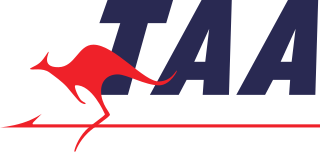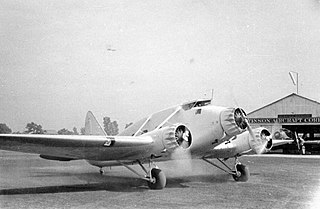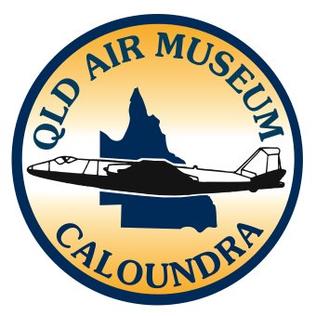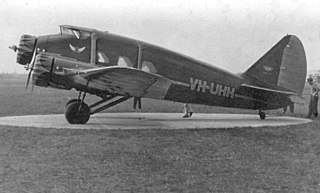
Airlines of Australia was an airline that serviced Australia, originally commencing as New England Airlines in 1931, until being absorbed by Australian National Airways in July 1942.

Airlines of Australia was an airline that serviced Australia, originally commencing as New England Airlines in 1931, until being absorbed by Australian National Airways in July 1942.
Airlines of Australia was originally incorporated as New England Airways on 1 January 1931, with George A. Robinson as managing director and his future son-in-law, Keith Virtue (1909–1980) as director and chief pilot. [1] [2]
Taking over Qantas' Brisbane to Lismore route, the company first used a four-passenger Mahoney-Ryan B-1 (VH-UIZ) and three-passenger de Havilland Puss Moth (VH-UPM). [3]
Further aircraft were purchased, and more routes acquired and extended. [4]
In October 1935 the new company of Airlines of Australia Limited was floated to replace and incorporate New England Airways. [5] It commenced operations in January 1936. The new company also acquired the rights to manufacturing Sikorsky flying boats. [6]
Australian National Airways (ANA) gained a controlling interest in Airlines of Australia in April 1937, although the two airlines and assets retained separate public identities until 1 July 1942. Their two surviving Stinsons were then renamed VH-UKK Binana and VH-UYY Tokana. Airlines of Australia also held shares in ANA. [7] By 1954, the company was showing a financial loss. [8]
The airline colour was red.
Airlines of Australia owned over twenty aircraft, including:

Trans Australia Airlines (TAA), renamed Australian Airlines in 1986, was one of the two major Australian domestic airlines between its inception in 1946 and its merger with Qantas in September 1992. As a result of the "COBRA" project, the entire airline was rebranded Qantas about a year later with tickets stating in small print "Australian Airlines Limited trading as Qantas Airways Limited" until the adoption of a single Air Operator Certificate a few years later. At that point, the entire airline was officially renamed "Qantas Airways Limited" continuing the name and livery of the parent company with the only change being the change of by-line from "The Spirit of Australia" to "The Australian Airline" under the window line with the existing "Qantas" title appearing above.

The de Havilland Express, also known as the de Havilland D.H.86, was a four-engined passenger aircraft manufactured by the de Havilland Aircraft Company between 1934 and 1937.

Essendon Fields Airport, colloquially known by its former name Essendon Airport, is a 305 ha public airport serving scheduled commercial, corporate-jet, charter and general aviation flights. It is located next to the intersection of the Tullamarine and Calder Freeways, in the north western suburb of Essendon Fields of Melbourne, Victoria, Australia. The airport is the closest to Melbourne's City Centre, approximately an 11 km (6.8 mi) drive north-west from it and 8 km (5.0 mi) south-east from Melbourne–Tullamarine Airport. In 1970, Tullamarine Airport replaced Essendon as Melbourne's main airport.

Sir Reginald Myles Ansett KBE was an Australian businessman and aviator. He was best known for founding Ansett Transport Industries, which owned one of Australia's two leading domestic airlines between 1957 and 2001. He also established a number of other business enterprises including Ansett Pioneer coachlines, Ansett Freight Express, Ansair coachbuilders, Gateway Hotels, Diners Club Australia, Biro Bic Australia and the ATV-0 television station in Melbourne and TVQ-0 in Brisbane which later became part of Network Ten. ATI also bought out Avis Rent a Car and had a 49% interest in Associated Securities Limited (ASL). In late 1979, mainly due to the collapse of ASL, Ansett lost control of the company to Peter Abeles of TNT and Rupert Murdoch of News Corporation who became joint managing directors.

The Avro 618 Ten or X was a passenger transport aircraft of the 1930s. It was a licensed version by Avro of the Fokker F.VIIB/3m.

The de Havilland DH.80A Puss Moth is a British three-seater high-wing monoplane aeroplane designed and built by the de Havilland Aircraft Company between 1929 and 1933. It flew at a speed approaching 124 mph (200 km/h), making it one of the highest-performance private aircraft of its era.

Australian National Airways (ANA) was Australia's predominant aerial carrier from the mid-1930s to the early 1950s.

The de Havilland DH.84 Dragon is a successful small commercial aircraft that was designed and built by the de Havilland company.

Connellan Airways was an airline headquartered in Alice Springs, Australia. It operated scheduled flights as well other air transport services throughout the Northern Territory from 1939 to 1980.

Australian National Airways, Ltd. (ANA) was a short-lived Australian airline, founded on 3 January 1929 by Charles Kingsford Smith and Charles Ulm.

Ivy May Hassard was one of the first female pilots in the southern hemisphere and a pioneer of the Gold Coast, Queensland, Australia. She is noted for her contribution to the cultural development of the Gold Coast, opening the first fashion boutique in Surfers Paradise in 1946.

The Stinson Model A was a moderately successful airliner of the mid-1930s. It was one of the last commercial airliners designed in the United States with a fabric-covered steel tube fuselage before the introduction of stressed skin aluminum construction.
Keith Allison Virtue MBE was a pioneer Australian aviator. Sir Lawrence Wackett, in the foreword of Keith Virtue's biography, writes that he was an experienced airman himself but he marvelled at the ability and skill of Keith Virtue and counts him as one of the greatest of the Australians who devoted their life's work to the task of pioneering airlines in Australia.

O'Reilly's Rainforest Retreat is a tourist destination in the locality of O'Reilly, Scenic Rim Region, Queensland, Australia. It is situated in the heart of the Lamington National Park, two hours by road south of Brisbane and 90 minutes by road west of the Gold Coast. Access to the mountain resort is via Canungra. Guests began staying from Easter 1926. Gravel road to the door of the retreat was completed in early 1947, marking a distinct change in the site's accessibility.

On 10 March 1949 a Lockheed Lodestar aircraft became airborne at Coolangatta, Queensland, Australia for a flight to Brisbane. Before reaching a height of 300 feet (90 m) it suddenly pitched nose-up, stalled and crashed onto its belly beyond the end of the airstrip.
The Riddle of the Stinson is a 1987 Australian television film about the 1937 Airlines of Australia Stinson crash at Lamington, Queensland, Australia and the rescue of its survivors by local Queenslander Bernard O'Reilly.

On 31 January 1945 a Stinson Model A aircraft departed from Melbourne for a flight of 127 nautical miles (235 km) to Kerang, Victoria—the first leg of an Australian National Airways regular scheduled service to Broken Hill, New South Wales. It crashed 50 nmi (93 km) from Melbourne. All ten occupants were killed in the accident. The aircraft was one of four Stinsons imported in 1936 by Airlines of Australia (AoA). Three had now crashed with the loss of 17 lives, and the fourth would not be permitted to fly again.

The Queensland Air Museum is a not-for-profit community-owned aviation museum located at Caloundra Airport in Queensland, Australia. Its mission is to collect and preserve all aspects of aviation heritage with an emphasis on Australia and Queensland. The museum has the largest collection of historical aircraft in Queensland and it also has a large collection of aircraft engines, equipment, artefacts, photographs and books.

The 1937 Airlines of Australia Stinson crash was an accident which occurred on 19 February 1937. The Airlines of Australia Stinson Model A airliner disappeared during a flight from Brisbane to Sydney, carrying five passengers and two pilots. Both pilots and two passengers were killed in the crash. One of the surviving passengers died while attempting to bring help to the other survivors.
North Queensland Airways Pty. Ltd. (NQA) was an Australian company established on 7 May 1936 to operate air services in Queensland, Australia.